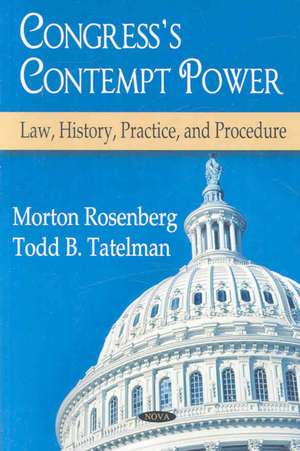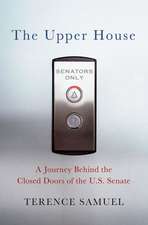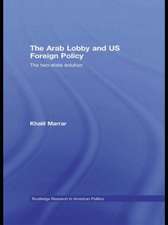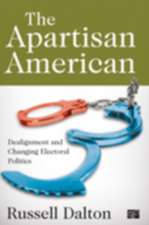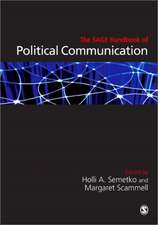Congress's Contempt Power
Autor Morton Roesnberg, Todd B Tatelmanen Limba Engleză Paperback – 14 dec 2008
Preț: 290.69 lei
Preț vechi: 392.03 lei
-26% Nou
Puncte Express: 436
Preț estimativ în valută:
55.63€ • 57.86$ • 45.93£
55.63€ • 57.86$ • 45.93£
Carte disponibilă
Livrare economică 24 martie-07 aprilie
Preluare comenzi: 021 569.72.76
Specificații
ISBN-13: 9781604563993
ISBN-10: 1604563990
Pagini: 99
Dimensiuni: 154 x 227 x 8 mm
Greutate: 0.21 kg
Editura: Nova Science Publishers Inc
ISBN-10: 1604563990
Pagini: 99
Dimensiuni: 154 x 227 x 8 mm
Greutate: 0.21 kg
Editura: Nova Science Publishers Inc
Cuprins
Preface; Introduction; Congresss Power to Investigate; Early History of Congressional Contempt; Inherent Contempt; Inherent Contempt Proceedings By Committees of Congress; Statutory Criminal Contempt; The Position of the Department of Justice on the Use of Inherent and/or Criminal Contempt of Congress Against the Executive Branch; Civil Contempt; Civil Contempt in the Senate; Civil Contempt in the House of Representatives; Non-Constitutional Limitations; Authorisation and Jurisdiction; Legislative Purpose; Pertinency; Wilfulness; Other Procedural Requirements; Attorney-Client Privilege; Work Product Immunity and Other Common Law Testimonial Privileges; Constitutional Limitations; First Amendment; Fourth Amendment; Fifth Amendment Privilege Against Self-Incrimination; Fifth Amendment Due Process Rights; Index.
